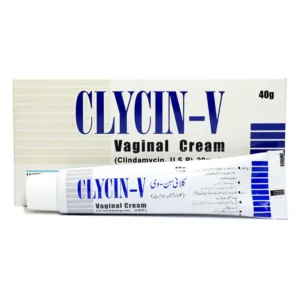Vaginal Infection Medicine
Find top Vaginal Infection Medicine and creams for itching relief. Shop our range of treatments to effectively address and cure vaginal infections.
Showing all 9 results
-

Canesten Vaginal 100mg
₨ 144 Add to cart -

Clycin-V Vag 40g Cream
₨ 550 Add to cart -

Gyno-Daktarin 20g Cream
₨ 192 Add to cart -

Gynosporin Vaginal Cream 35g | Buy Online In Pakistan
₨ 156 Add to cart -

Gynosporin Vaginal Cream 5g | Buy Online In Pakistan
₨ 121 Add to cart -

Metni V Vag Gel 75g
₨ 173 Add to cart -

Revag Vaginal Oint 25gm
₨ 740 Add to cart -

Vagi Saf Hygiene Wash 65ml
₨ 240 Add to cart -

VAGIBACT VAGINAL CREAM 40GM 1S
₨ 750 Add to cart

 Cart is empty
Cart is empty